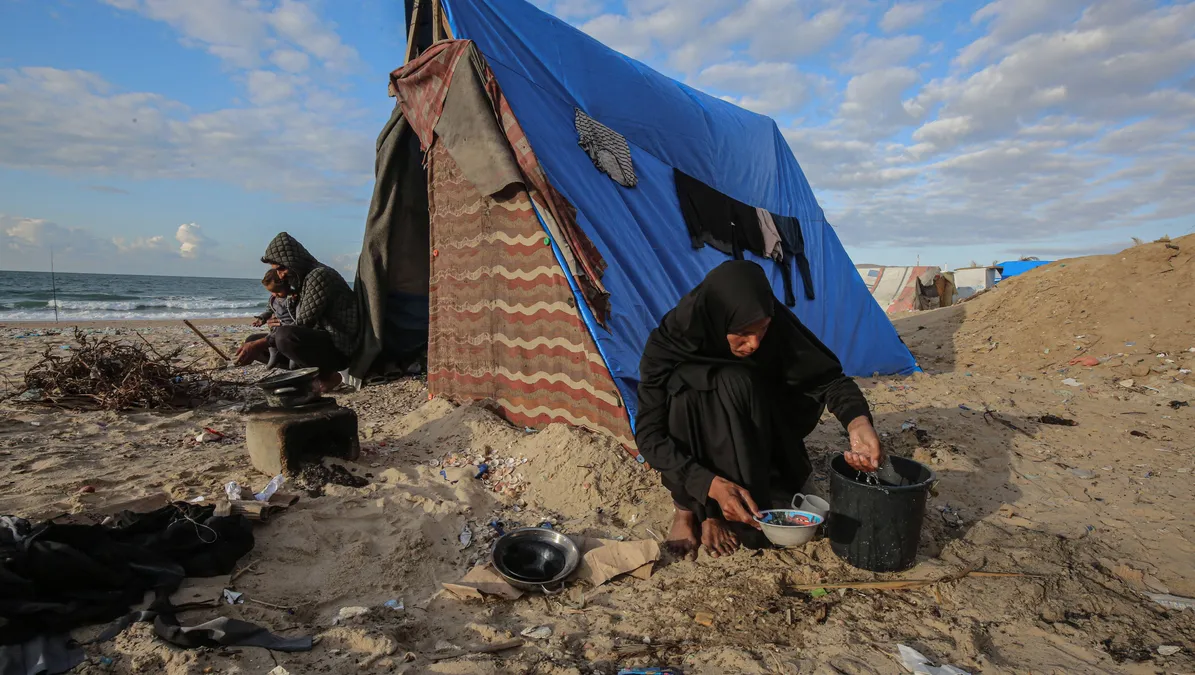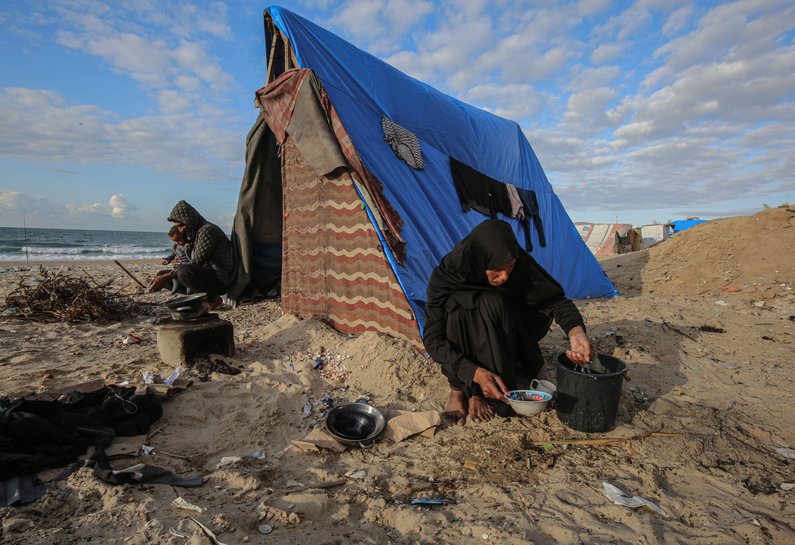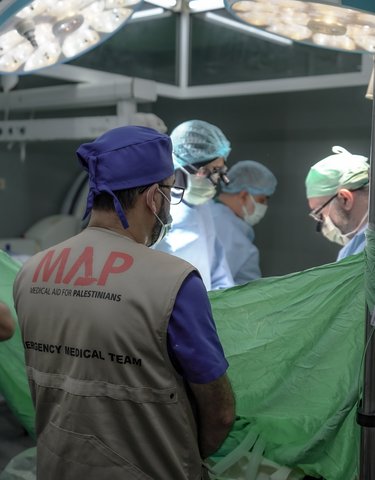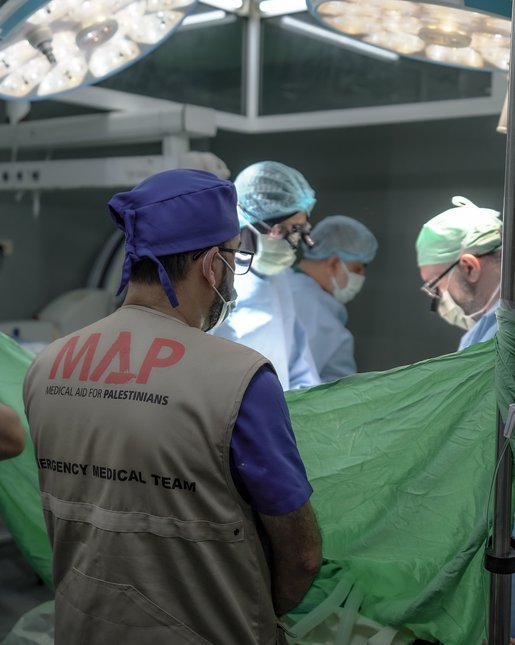Surviving winter in Gaza
7 January 2025


The Israeli military’s 15-month bombardment and siege has already made Gaza almost uninhabitable. Aid restrictions have led to severe shortages of food, water and shelter and almost 70% of all buildings have been damaged or destroyed by bombing. With the winter now firmly setting in, people are forced to try and live through increasingly harsh conditions with limited means.
“The suffering of most internally displaced people in Gaza has many faces. Almost all essential life needs are lacking here, causing everyday hardships that become like an unbreakable vicious cycle. There are shortages of drinking water, food, hygiene items, medication and medical care, transportation, income, services for children... the list goes on,” said Mohammed Alkhatib, Medical Aid for Palestinian’s (MAP) Deputy Director of Programmes in Gaza.
More than 1.9 million people – nearly 90% of Gaza’s population – have been driven from or lost their homes due to attacks by the Israeli military. Families are now living in tents or other makeshift shelters. Many of these shelters are built out of whatever people can find - threadbare blankets, salvaged tarpaulin and pieces of cardboard. Most have already been in use for many months and will need to be replaced to withstand the winter weather.
But Israel’s severe restrictions on aid into Gaza mean getting hold of appropriate materials to stay warm and dry over the winter is virtually impossible. At least eight babies have now died from hypothermia this winter, reports the Palestinian Ministry of Health, and the systematic dismantling of the healthcare system has resulted in a phenomenally high risk of widespread disease.
“It is beyond imagination, knowing that people can barely survive regular weather with whatever they have. Besides that, winter conditions bring with them the increased risk of diseases such as upper respiratory tract infections. The wholesale destruction of critical infrastructure massively increases the risk of flooding and further contamination of the fragile sewage system,” said Mohammed.
“A lack of proper clothing, blankets and safe heating means families will remain cold and at risk for many months. Most internally displaced people have already been living in tents for a very long time and have a depleted means of coping with further deterioration in their already extremely difficult situation,” he added.
Since October 2023, MAP has been providing essential aid to Palestinians in Gaza including medicines, hygiene kits, food packages and shelter supplies. We have also been giving vital support to hospitals to treat patients and established medical points across Gaza to reach people in need.
Please help us to support the people of Gaza this winter. You can donate here.
Photo: Odai Olaiwa and his family are pictured beside a tent on the seaside in the city of Deir al-Balah in central Gaza, 2 December 2024. (Credit: Omar Ashtawy/Alamy).

